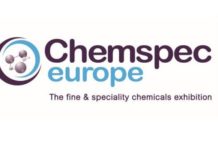Novartis announced that the EU has approved Afinitor®(everolimus) tablets for the treatment of unresectable or metastatic, well-differentiated (Grade 1 or Grade 2) nonfunctional neuroendocrine tumors (NET) of gastrointestinal (GI) or lung origin in adults with progressive disease.
Afinitor is the first approved therapy in all 28 member states of the European Union (EU), plus Iceland and Norway, for this type of lung NET, and one of very few treatment options available for this type of GI NET.
“With this decision, Afinitor is now approved in the EU to treat the three most common types of advanced NET,” said Bruno Strigini, President, Novartis Oncology. “As a company that has long been dedicated to advancing care for NET patients, we are pleased that this latest milestone makes Afinitor available to patients in the EU who previously had few or no approved treatment options.”
Neuroendocrine tumors are a type of cancer that originate in neuroendocrine cells throughout the body, and most commonly arise in the GI tract, lungs or pancreas[1],[4]. NET can be defined as functional or nonfunctional[5]. The majority of patients with NET (72%) have nonfunctional NET, which are characterized by symptoms caused by tumor growth, such as intestinal obstruction, pain and bleeding for GI NET, and asthma, chronic obstructive pulmonary disease and pneumonia for lung NET[5],[6],[7],[8],[9]. In contrast, functional NET are characterized by symptoms caused by the oversecretion of hormones and other substances[5]. Five to 44% (depending on site of tumor origin) of those with GI NET and 28% of those with lung NET have advanced disease at time of diagnosis, meaning the cancer has spread to other areas of the body, and patients face limited treatment options[1],[4]. Progression, or the continued growth or spread of the tumor, is typically associated with poor prognoses[10].
The EU approval of Afinitor was based on efficacy and safety data from a pivotal Phase III study (RADIANT-4) evaluating Afinitor versus placebo in patients with advanced, progressive, well-differentiated nonfunctional NET of GI or lung origin. Results showed that Afinitor reduced the risk of disease progression by 52% (hazard ratio = 0.48; 95% confidence interval [CI], 0.35-0.67; p<0.00001) compared to placebo. The data also showed Afinitor increased median progression-free survival (PFS) by 7.1 months: median PFS by central review was 11.0 months (95% CI, 9.2-13.3) in the Afinitor arm and 3.9 months (95% CI, 3.6-7.4) in the placebo arm[3].
In the pivotal trial, the most common treatment-related, all-grade adverse events (AEs) (incidence >=20%) for Afinitor and placebo, respectively, were stomatitis (63% vs 19%), diarrhea (31% vs 16%), fatigue (31% vs 24%), infections (29% vs 4%), rash (27% vs 8%) and peripheral edema (26% vs 4%). The most common treatment-related grade 3/4 AEs (incidence >=5%) for Afinitor versus placebo were stomatitis (9.0% vs 0.0%), diarrhea (7.0% vs 2.0%) and infections (7.0% vs 0.0%)[3].
In February 2016, the US Food and Drug Administration approved Afinitor for the treatment of adult patients with progressive, well-differentiated nonfunctional NET of GI or lung origin that are unresectable, locally advanced or metastatic. In April 2016, the Committee for Medicinal Products for Human Use (CHMP) of the European Medicines Agency (EMA) adopted a positive opinion for Afinitor tablets for the treatment of unresectable or metastatic, well-differentiated (Grade 1 or Grade 2) nonfunctional NET of GI or lung origin in adults with progressive disease. Afinitor received approval for this indication in Canada in May 2016, and additional worldwide regulatory filings are underway.
About RADIANT-4 Study: Part of the largest clinical trial program in advanced NET
RADIANT-4 (RAD001 In Advanced Neuroendocrine Tumors) is a Phase III prospective, double-blind, randomized, parallel group, placebo-controlled, multicenter study. It examined the efficacy and safety of Afinitor plus best supportive care (BSC) vs placebo plus BSC in 302 patients with unresectable, progressive, well-differentiated nonfunctional, locally advanced or metastatic NET of GI (excluding pancreatic) or lung origin. The primary endpoint of RADIANT-4 was PFS based on independent radiological assessment evaluated by Response Evaluation Criteria in Solid Tumors. Secondary endpoints included overall survival and best overall response rate (defined as complete response plus partial response)[3].
Patients were randomized 2:1 to receive a daily dose of Afinitor 10 mg or placebo (supplied as tablets). During treatment, all patients received BSC, which excluded somatostatin analogues (SSAs). Patients had low or intermediate grade histology, no history or active symptoms of carcinoid syndrome, and documented disease progression within the previous 6 months, and were required to have stopped treatment with SSAs for 4 weeks before study entry[3],[11].
The safety profile of Afinitor was consistent with what has been observed in previous studies of this drug[3].
About Afinitor® (everolimus) tablets
Afinitor (everolimus) tablets is approved in in more than 110 countries, including the US and in the European Union, for locally advanced, metastatic or unresectable progressive NET of pancreatic origin. Afinitor is not indicated for the treatment of patients with functional carcinoid tumors in the US. Afinitor is now also approved in the US and EU for the treatment of adult patients with progressive, well-differentiated (Grade 1 or Grade 2), nonfunctional neuroendocrine tumors of gastrointestinal or lung origin that are unresectable, locally advanced or metastatic.
It is also approved in more than 120 countries including the US and European Union for advanced renal cell carcinoma following progression on or after vascular endothelial growth factor (VEGF)-targeted therapy (in the US, specifically following sunitinib and sorafenib).
Additionally, Afinitor is approved in more than 110 countries including the United States and European Union for advanced HR+/HER2- breast cancer in combination with exemestane, after prior endocrine therapy.
Everolimus is also available from Novartis for use in certain non-oncology patient populations under the brand names Afinitor® or Votubia®, Certican® and Zortress® and is exclusively licensed to Abbott and sublicensed to Boston Scientific for use in drug-eluting stents.
Indications vary by country and not all indications are available in every country. The safety and efficacy profile of everolimus has not yet been established outside the approved indications. Because of the uncertainty of clinical trials, there is no guarantee that everolimus will become commercially available for additional indications anywhere else in the world.
About Novartis
Novartis provides innovative healthcare solutions that address the evolving needs of patients and societies. Headquartered in Basel, Switzerland, Novartis offers a diversified portfolio to best meet these needs: innovative medicines, eye care and cost-saving generic pharmaceuticals. Novartis is the only global company with leading positions in these areas. In 2015, the Group achieved net sales of USD 49.4 billion, while R&D throughout the Group amounted to approximately USD 8.9 billion (USD 8.7 billion excluding impairment and amortization charges). Novartis Group companies employ approximately 118,000 full-time-equivalent associates. Novartis products are available in more than 180 countries around the world. For more information, please visit http://www.novartis.com.
For Novartis multimedia content, please visit www.novartis.com/news/media-library.
For questions about the site or required registration, please contact: media.relations@novartis.com
References
[1] American Cancer Society. Gastrointestinal Carcinoid Tumors. Available a thttp://www.cancer.org/acs/groups/cid/documents/webcontent/003102-pdf.pdf(link is external). Accessed May 2016.[2] American Cancer Society. Lung Carcinoid Tumors. Available athttp://www.cancer.org/acs/groups/cid/documents/webcontent/003117-pdf.pdf(link is external). Accessed May 2016.
[3] Afinitor Summary of Product Characteristics.
[4] Yao J, et al. One hundred years after “Carcinoid:” Epidemiology of and prognostic factors for neuroendocrine tumors in 35,825 cases in the United States. J Clin Oncol. 2008; 26: 3063-72.
[5] Öberg K, et al. Gastrointestinal neuroendocrine tumors. Annals of Oncology. 2010; 21: vii72-vii80.
[6] Choti M.A., et al. Prevalence of functional tumors in neuroendocrine carcinoma: An analysis from the National Comprehensive Cancer Network Neuroendocrine Tumors database. The North American Neuroendocrine Tumor Society (NANETS) Symposium. October 2012, San Diego, US.
[7] Modlin I, et al. Priorities for improving the management of gastroenteropancreatic neuroendocrine tumors. J Natl Cancer Inst. 2008; 100: 1282-1289.
[8] Modlin I, et al. Current status of gastrointestinal carcinoids. Gastroenterology. 2005; 128: 1717-1751.
[9] Wolin EM. Challenges in the diagnosis and management of well-differentiated neuroendocrine tumors of the lung (typical and atypical carcinoid): Current status and future considerations. The Oncologist. 2015; 20:1123-1131.
[10] National Cancer Institute. “NCI Dictionary of Cancer Terms.”Available at http://www.cancer.gov/publications/dictionaries/cancer-terms(link is external). Accessed May 2016.
[11] Yao J, et al. Everolimus for the treatment of advanced, non-functional neuroendocrine tumours of the lung or gastrointestinal tract (RADIANT-4): a randomised, placebo-controlled, phase 3 study. The Lancet.2016; 387 (10022): 968-977.


























